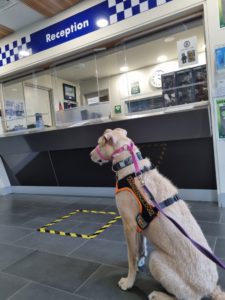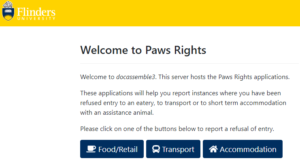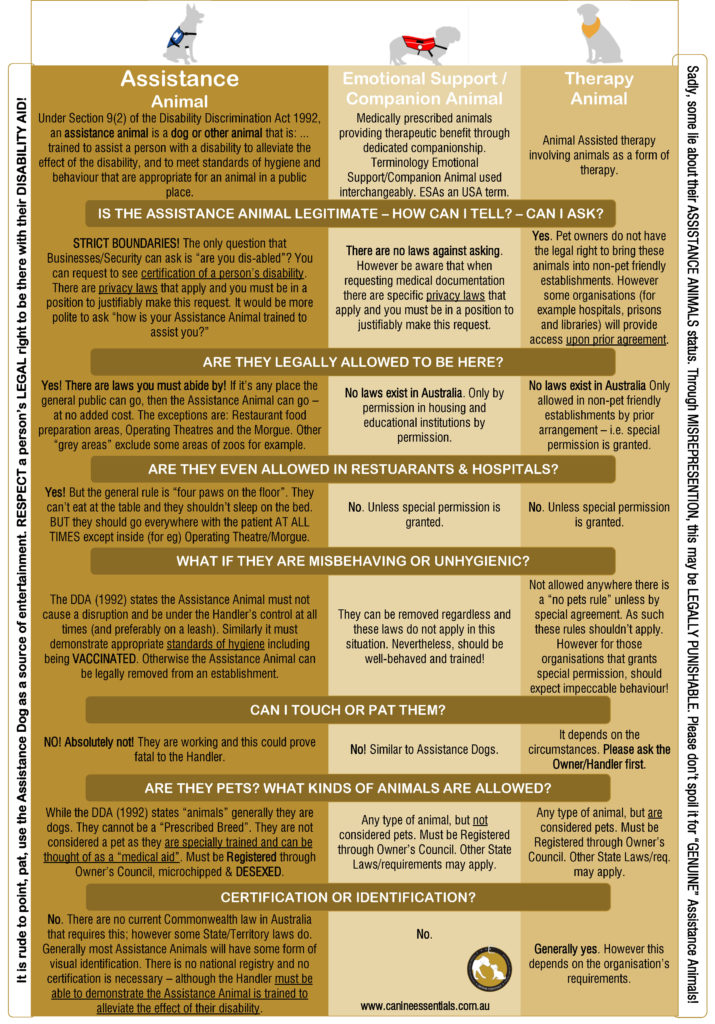What is an Assistance Dog
An Assistance Dog is one that is specifically trained to to aid people that have a disability. Disabilities can include:
- hearing impairments
- mental illness
- seizures
- visual difficulties
- autism
Types of Assistance Dogs
There are generally three categories that Assistance Dogs can be grouped into:
- Guide Dogs
- Hearing Dogs
- Service Dogs
Service Dogs can be further categorised into the following:
- Mobility Assistance Dogs
- Seizure Alert Dogs
- Medic Alert Dogs
- Psychiatric Service Dogs
The right of public access
Assistance Dogs in Australia have very specific ‘rights’, namely the right of public access. This means that trained Assistance Dogs are allowed in public places and on public passenger vehicles. Business such as restaurants, hotels, shops, taxis, theatres and sports facilities must not refuse entry to an Assistance Dog – and strict penalties do apply if access is refused. The legislative guidelines pertaining to Assistance Dogs are governed at both a Federal and a State level.
Although it is worth noting that where there is conflicting laws on the same subject, Section 109 of the Australian Constitution stipulates that federal law overrides the state law (or, for example, the part of the state law that is inconsistent with the relevant part of the federal law).
How to get an Assistance Dog
In Australia, there are generally four options for a person that may require the services of an Assistance Dog. These are:
- Being accepted in to an organisation that will place an Assistance Dog with you.
- Being accepted in to an organisation that will assist you in training your own dog (subject to certain criteria being met).
- These organisations require you to pass their own Public Access Test (PAT).
- These organisations may or may not be accredited through state authorities.
- Training your own dog to Assistance Dog standards and applying to sit the PAT through a state government body.
- Train your own dog to meet standards of hygiene and behaviour that are appropriate for an animal in a public place.
Note in all situations, it is generally a requirement that a General Practioner AND a Psychiatrist or Psychologist must specifically prescribe an Assistance Dog for your medical condition.













